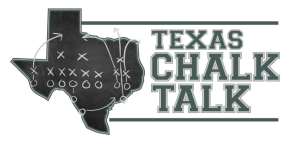Bowlsby still bullish on Big 12 future, notes an area he wants adjusted
Big 12 Commissioner Bob Bowlsby made it clear to reporters attending Big 12 Media Days that the conference is much better than people around the country give it credit for in his state of the conference address July 17.
“We won five national championships,” he said. “I think we finished in the top four in the country in 18 sports. But we’re here to talk football, and we didn’t make the College Football Playoff. Obviously that’s the coin of the realm at this point.”
Still, he noted the Big 12’s football teams was 2-1 in bowl games against the SEC, thought of as the premier conference in the country. Oklahoma crushed Auburn 35-19 in the Sugar Bowl, and Kansas State slipped past Texas A&M 33-28 in the Texas Bowl.
Bowlsby also publicly thanked former Oklahoma head coach Bob Stoops, who retired about a month ago, for his contributions to the sport.
“What I said to him was I have been really grateful for his care about the quality of the game of football,” the commissioner said. “He has been a real leader among our coaches. He has been a voice for moderation.”
Bowlsby spoke of an area the NCAA Council will examine — the qualifications of strength and conditioning coaches. He noted the concern is that with only two strength and conditioning organizations nationally, neither have a “tremendously strong certification process.”
“We don’t have any state certification on what happens with strength-and-conditioning coaches, what their academic preparation is, what their standards are, how often they have to be recertified and the like,” he said.
He compared the status of strengt- and-conditioning coaches to what athletic trainers looked like two decades ago. Back then there weren’t many universities that offered specialized degrees in sports medicine or continued training in the field.
“Now through a variety of state licensure and training programs, the sports medicine profession is more akin to a true medical specialty than it is to a sports function,” Bowlsby said.
He later outlined to Texas Chalk Talk more clearly what he’s looking for, which includes their backgrounds, expertise, how they’re supervised and other parts of the job.
“I want them to be state licensed and have better criteria,” he said. “Strength-and-conditioning coaches come into the profession in different directions. Some have academic preparation, others don’t.”
He wants to see a consistent certification process for all strength-and-conditioning coaches, though the commissioner noted there’s still research to be done on creating that procedure.
“We haven’t dived into it from enough angles,” he said. “But the more education, the more certification is better than less.”
The goal is to have safer environments for student-athletes, Bowlsby said, noting most of the catastrophic occurrences are during conditioning and off-season training.


